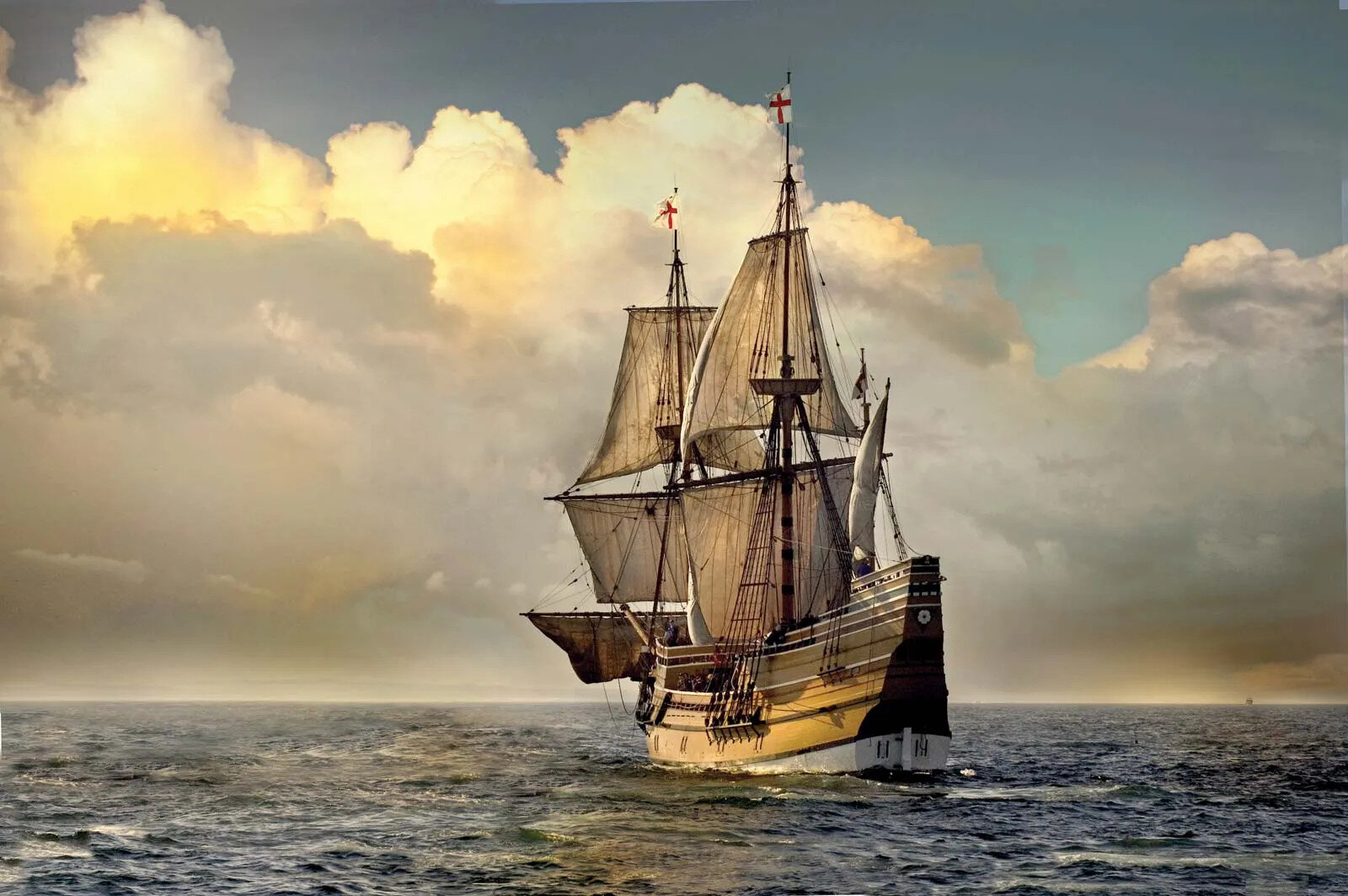
Ever wondered why September 16th holds a special place in history books and hearts alike? Mayflower Day celebrates the voyage that changed the course of history. On this day in 1620, the Mayflower set sail from Plymouth, England, carrying Pilgrims to the New World. But what makes this event so noteworthy, and why do we continue to commemorate it centuries later? From the perilous journey across the Atlantic to the foundational agreements that would shape democratic governance, the story of the Mayflower is a tale of bravery, innovation, and the unyielding human spirit. Ready to dive into the past and uncover some fascinating facts about Mayflower Day? Let's set sail on this historical adventure together, uncovering truths that continue to resonate with us, centuries later.
Key Takeaways:
- Mayflower Day celebrates the Pilgrims' journey to America in 1620, marking their quest for freedom and the establishment of early American society. It's a day to honor their resilience and the values that shaped the United States.
- Mayflower Day is a time to learn about the Pilgrims' hardships, their impact on American history, and to explore personal connections to the Mayflower passengers. It's a day for historical reenactments, genealogy research, and educational programs.
What is Mayflower Day?
Mayflower Day, observed on September 16th, commemorates the departure of the Mayflower from Plymouth, England, in 1620. This day marks the beginning of a significant voyage that would eventually lead to the founding of Plymouth Colony in present-day Massachusetts, USA. It's a day to remember the courage and determination of the Pilgrims who sought religious freedom and a new life in an unknown land.
Why Do We Celebrate Mayflower Day?
We celebrate Mayflower Day to honor the Pilgrims' quest for freedom and their contributions to the establishment of early American society. Their journey symbolizes the hardships early settlers faced and their resilience in seeking a better life. This day serves as a reminder of the foundational values and the rich history that shaped the United States.
Key Facts About the Mayflower and Its Journey
- The Mayflower was not the only ship set to sail to the New World; it was accompanied by the Speedwell, which was found to be unseaworthy, leading all passengers to board the Mayflower.
- Originally, the Mayflower intended to land in the Colony of Virginia, but due to navigational errors and rough seas, it reached Cape Cod instead.
- The journey across the Atlantic Ocean took 66 days, from September 16th to November 11th, 1620.
- There were 102 passengers on board, including men, women, and children, seeking a new life in America.
- Before disembarking, the Pilgrims signed the Mayflower Compact, an agreement that established a basic form of democracy and self-government, which is considered a foundational document of American political culture.
The Legacy of the Mayflower Pilgrims
- Many Americans can trace their ancestry back to one of the Mayflower passengers, making Mayflower Day a personal connection to their family history.
- The Pilgrims' first winter in the New World was brutal, with only half of the Mayflower's original passengers surviving until spring.
- Despite the hardships, the survivors managed to build a settlement and form alliances with local Native American tribes, including the Wampanoag, which were crucial for their survival.
- The first Thanksgiving in 1621 was celebrated by the Pilgrims and the Wampanoag tribe, marking a successful harvest and the cooperation between the two groups.
How Mayflower Day is Observed
- Mayflower Day is observed in various ways, including historical reenactments, educational programs, and visits to Plymouth Rock in Massachusetts, where the Pilgrims are believed to have landed.
- Some people use this day to research their genealogy, looking for connections to the Mayflower passengers.
- Schools and communities often hold events that teach about the Pilgrims' journey, the challenges they faced, and their impact on American history.
- In Plymouth, England, where the Mayflower's voyage began, there are commemorations that highlight the ship's significance in both American and British history.
- Across the United States, Mayflower societies and historical groups host lectures, exhibits, and ceremonies that pay tribute to the Pilgrims' legacy and their place in American history.
A Final Nod to Mayflower Day
Mayflower Day isn't just another date on the calendar. It's a moment to pause and reflect on the courage, determination, and hope of those 102 passengers who set sail for a new world. Their journey, marked by hardship and resilience, laid the foundations for future generations. Celebrating this day allows us to honor their legacy, understand the complexities of history, and appreciate the diverse narratives that have shaped our present. Whether through educational activities, family discussions, or personal reflection, recognizing Mayflower Day connects us to a pivotal point in history. It's a reminder of the enduring human spirit's quest for freedom and a better life. So, as September 16th rolls around, let's take a moment to remember the Mayflower's voyage and its significant impact on history.
Frequently Asked Questions
Was this page helpful?
Our commitment to delivering trustworthy and engaging content is at the heart of what we do. Each fact on our site is contributed by real users like you, bringing a wealth of diverse insights and information. To ensure the highest standards of accuracy and reliability, our dedicated editors meticulously review each submission. This process guarantees that the facts we share are not only fascinating but also credible. Trust in our commitment to quality and authenticity as you explore and learn with us.
